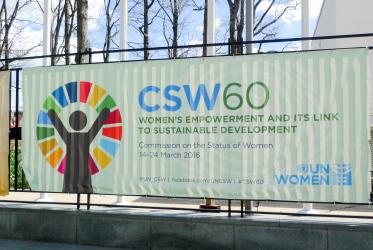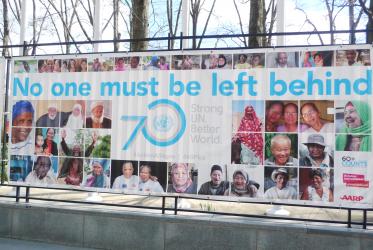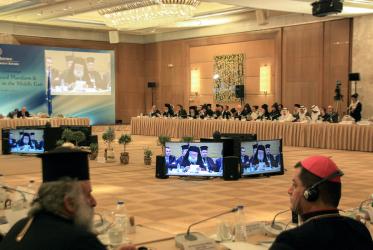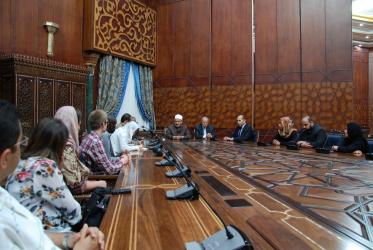Displaying 61 - 80 of 94
International affairs facilitator reflects on pilgrimage
31 March 2016
Religious leaders as agents of peace in the Americas
02 March 2016
Symposium focuses on religion, violence, extremism
04 February 2016
WCC Executive Committee works toward a future of peace and justice
19 November 2015
WCC strongly condemned terror attacks
14 November 2015
International conference addresses challenges in the Middle East
22 October 2015
WCC urges responsibility for and support to the refugees in Europe
04 September 2015










